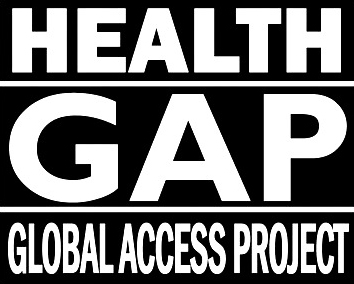 Access to New AIDS, TB, and Hepatitis C Medicines Threatened
Access to New AIDS, TB, and Hepatitis C Medicines Threatened
For Immediate Release
Health GAP (Global Access Project)
Contact: Paul Davis: +1 202 817 0129
pdavis@healthgap.org
Wikileaks has released a 77-page document revealing the negotiation positions of the twelve Pacific rim countries locked in negotiations for a Trans-Pacific Partnership (TPP) Agreement. The leaks reveal nothing but bad news for hundreds of millions of people living both in rich and poor countries whose access to affordable medicines will be threatened by the patent extremism that the White House seeks to export and impose on TPP trading partners.
“The US Trade Representative and the Obama Administration continue to push the industry’s agenda for draconian levels of intellectual property protections that lengthen, broaden, and strengthen patent monopolies on medicines,” say Professor Brook K. Baker, senior policy analyst for Health GAP. “Proposed language makes it easier to get successive, secondary patents on minor changes or new uses of existing medicines, and patent term extensions that increase monopoly profits on vital medicines–but at the cost of reduced access for poor and uninsured patients.”
In a surprising change from previously leaked TPP texts, the U.S. appears to be erecting new barriers against countries’ use of compulsory and government use licenses that have been widely accepted as lawful for 125 years, and confirmed in the WTO’s 1995 TRIPS Agreement. In addition, the U.S. continues to push for data or regulatory monopolies that prevent marketing approval of more affordable generic products, thereby erecting a second, rigid barrier to access. For biologic drugs these data/regulatory monopolies could last as long as 12 years. In exchange for its unwavering insistence on patent maximization, the Obama Administration is offering only illusory, temporary transition periods to developing country TPP members–after which they too will be bound to the most pro-industry set of IP protections on medicines that has ever been proposed.
Activists noted that the TPP texts, prepared in secret by the Obama Administration and its industry advisors without review by patient groups or Congress, is another reason to reject White House requests on The Hill for Trade Promotion Authority or “Fast Track”. Fast Track will limit the constitutionally-mandated responsibility of Congress to regulate trade policies, and the President will be pushing for a ‘Fast-Track’ vote in the coming months. “This text illustrates the urgency with which Congress must reject President Obama’s request for ‘Fast Track’” said Health GAP’s Paul Davis. “Otherwise, the pharmaceutical industry giveaways in the TPP will make all of us sick.”
“Although the negative effect of the US’s IP intransigence is most acute in poorer countries, the proposed TPP IP provisions will also tie hands of policy makers here, since several of the provisions will require changes in U.S. law,” say Matt Kavanagh, also a senior policy analyst at Health GAP. “Even worse, the TPP’s investment chapter will give ‘Big Pharma’ the right to seek private arbitration against all TPP parties, including the U.S., whenever industry feels that their expectations of monopoly profits are adversely affected by changing patent and regulatory standards or by adverse judicial or administrative decisions.”
“The disclosed TPP text is a bonanza for Big Pharma, and a disaster for patients everywhere,” said Asia Russell, recently appointed Executive Director of Health GAP. “In a world that continues to be threatened by unmet needs for access for medicines for conditions ranging from HIV/AIDS, hepatitis, and ebola to diabetes, heart disease and cancer, the Obama administration has administered a noxious potion of monopoly protections for Big Pharma and other IP transnationals.”
-end-




